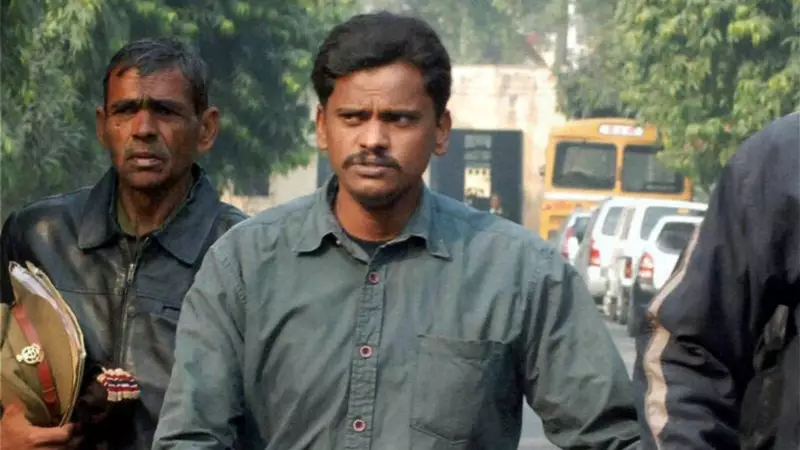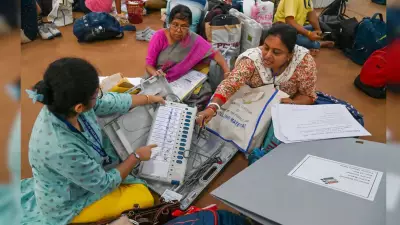
Supreme Court Overturns Final Conviction in Notorious Nithari Case
In a significant development, the Supreme Court has set aside the conviction of Surendra Koli in the final Nithari murder case, pertaining to the rape and murder of a teenage girl. The court directed that Koli be released unless he is wanted in any other case. This marks the culmination of a legal journey that began with the gruesome discoveries in Noida's Nithari village back in December 2006.
The acquittal in this final case comes after Koli was previously acquitted in 12 related murder cases by the Allahabad High Court in October 2023. The contrasting judicial approaches to the same evidence over different time periods have raised serious questions about investigative procedures and legal standards in high-profile criminal cases.
The Horrific Discovery That Shook the Nation
The Nithari killings first came to public attention in December 2006 when skeletal remains of eight children were discovered from a drain behind businessman Moninder Singh Pandher's residence in Noida's Nithari village. Koli worked as a domestic help at Pandher's house, and both men were arrested the same month.
The police had accused both Pandher and Koli of abducting and raping children and women, committing acts of cannibalism, and disposing of their bodies in a drain. According to allegations, Koli would kill the girls, chop their bodies into pieces, and discard them in the backyard area. The police eventually lodged 19 FIRs against the two men in connection with crimes against 19 girls, with Koli facing charges in 13 cases and Pandher in six.
Contrasting High Court Verdicts: 2009 vs 2023
What makes this legal saga particularly remarkable is the stark difference in judicial interpretation by two different benches of the Allahabad High Court within a span of 14 years.
In 2009, the Allahabad High Court examined four incriminating circumstances against Pandher and twelve against Koli that the trial court had relied upon. While the division bench set aside Pandher's conviction, finding no admissible evidence to substantiate allegations against him, it affirmed Koli's conviction and death sentence for murder and rape.
The 2009 court upheld eleven of the twelve incriminating circumstances against Koli, including recovery of the minor victim's clothing articles identified by her parents, Koli's confessional statement, recovery of skulls, bones, hair and clothes from around the house, DNA comparison evidence, and recovery of a knife and axe with Koli's assistance.
However, in a dramatic turnaround in 2023, the Allahabad High Court acquitted Koli in 12 cases and Pandher in two, citing a "botched" investigation where "basic norms of collecting evidence were brazenly violated." The court strongly criticized what it called "the easy course of implicating a poor servant of the house by demonising him."
Why the 2023 Court Rejected the Prosecution's Case
The 2023 verdict highlighted numerous procedural lapses and investigative failures that ultimately led to the acquittals:
Procedural violations in recording confession: The prosecution case heavily relied on Koli's confession made to UP Police in December 2006, but the court found that proper procedures for recording the accused's disclosure were completely ignored.
Failure to establish motive: The court noted that the prosecution failed to establish any motive on the part of the accused.
Lack of medical examination: Despite being in police custody for 60 days from December 29, 2006, to January 14, 2007, Koli was never medically examined to rule out the possibility of physical torture.
Retracted confession: Koli had retracted his confession, alleging brutal torture in police custody. While the 2009 court had dismissed this retraction, the 2023 bench gave it serious consideration.
Inadmissible evidence: The court ruled that narcoanalysis and brain mapping tests conducted on Koli while in police custody without magistrate presence could not be considered voluntary and were therefore inadmissible.
Absence of disclosure statement: The lack of proper disclosure statements, independent witnesses, and contradictory versions of information furnished meant that recoveries of biological remains and weapons failed the test under the Evidence Act.
Supreme Court's Final Word
The Supreme Court's decision to set aside Koli's conviction in the final case follows its earlier confirmation of the Allahabad High Court's 2023 acquittal in July this year. The legal journey that began with one of India's most horrifying criminal discoveries has now concluded with the judicial system ultimately prioritizing procedural integrity over public outrage.
The contrasting rulings by the same High Court over different time periods serve as a stark reminder of how legal interpretations can evolve and how crucial proper investigative procedures are in delivering justice. The Nithari case will undoubtedly continue to be studied for years to come as a landmark example of criminal jurisprudence, investigative failures, and the complex interplay between public expectation and legal standards.





